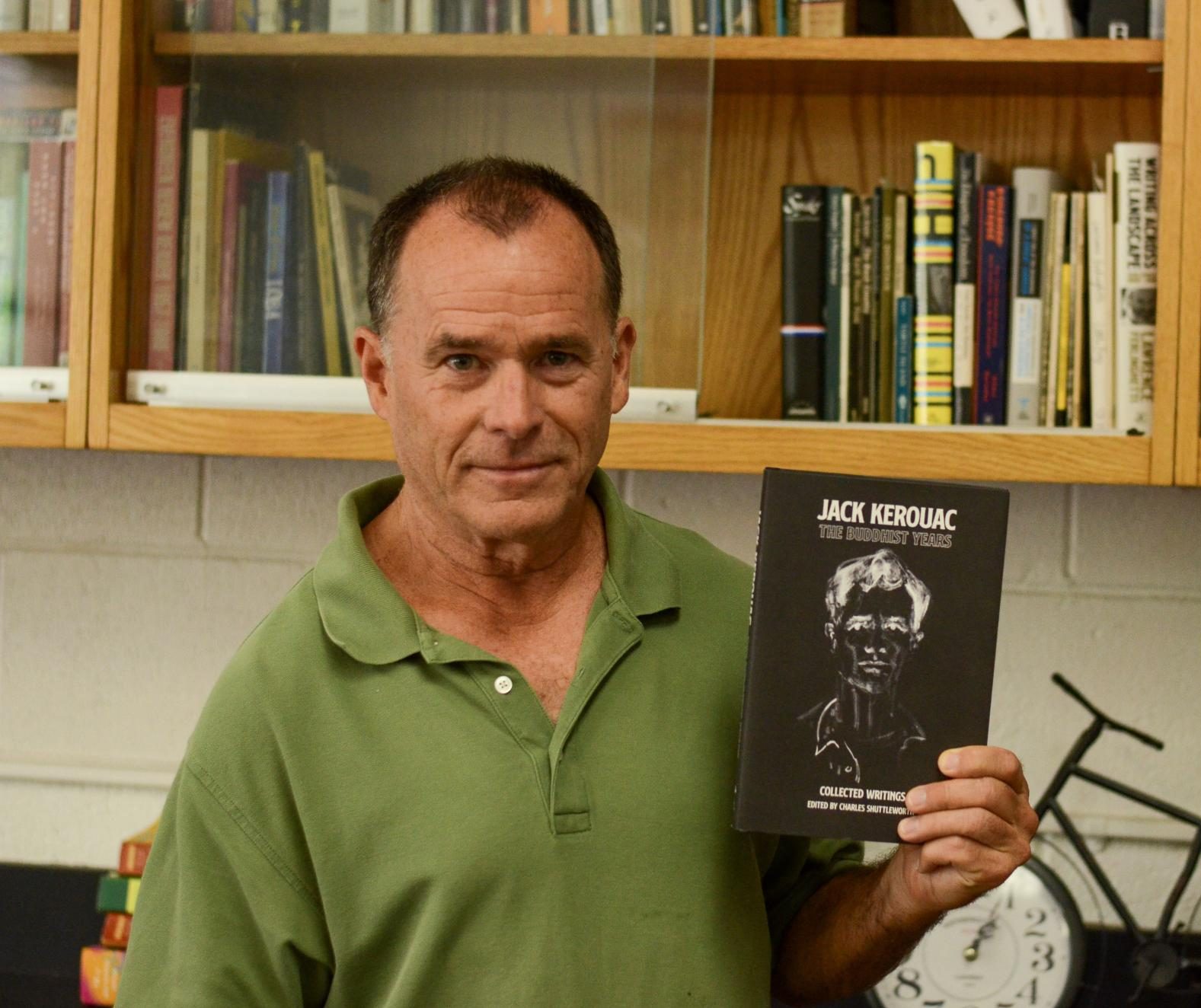English teacher Charles Shuttleworth’s recent book “The Buddhist Years” (2025) marks the third installment in his ongoing efforts to bring Jack Kerouac’s unseen writings to the public. For almost a decade, Shuttleworth has been transcribing his unpublished pieces and publishing them. His three volumes — “Desolation Peak” (2022), “Self Portrait” (2024) and “The Buddhist Years” (2025) — focus on periods in Kerouac’s life that shaped his spiritual and artistic trajectory.
A leader of the Beat Generation, Jack Kerouac’s works centered around modern and postmodern ideals. Like the modernists, he sought truth, beauty and authenticity in lived experiences; however, his use of spontaneous prose and fragmented narratives reflected the postmodern literary movement.
“Jack Kerouac was an extremely important writer in terms of culture and the direction that literature took,” Shuttleworth said. “He was primarily responsible for a movement away from formal poetry into a looser style. He’s considered a bridge between modernism and postmodernism.”
Shuttleworth’s deep dive into the Jack Kerouac Archive at the New York Public Library began when he was granted access as a teacher of the Jack Kerouac and the Beat Generation senior elective at Harker in the summer of 2017. He discovered an abundance of unpublished material, which he believed deserved to be read by the public audience.
His latest book, “The Buddhist Years,” focuses on Kerouac’s immersive study of Buddhism between 1954 and 1956. Whereas Kerouac’s earlier works like “On the Road” spun out spontaneous travel narratives, his writings from this period feature meditative and spiritually-infused prose, capturing a turning point in his style.
“Buddhism altered not only his perceptions, but also gave him a new vocabulary to write about — things that had been on his mind all along, that life is dream-like and that you can do what you want,” Shuttleworth said. “What he wanted to do was write. He was very different in this period. There’s much more spiritual questioning and looking at the world through more of a Buddhist lens.”
For Shuttleworth, Kerouac is more than an author to study — he is a source of inspiration who shaped Shuttleworth’s own path. Engaging with Kerouac’s work from an early age influenced him to embrace his own voice as a writer.
“I always wanted to write,” Shuttleworth said. “I found my desire to be a writer in late high school. In pursuing that, Kerouac was a major influence on me. There were a lot of writers I liked, but Kerouac was certainly one of them.”
Just as Jack Kerouac opened the door of writing for him, Shuttleworth encourages students to seek out what excites them and to let their true desires guide their personal growth. He emphasizes the importance of pursuing their passions and embracing curiosity in all aspects of life.
“My biggest insight for the audience, which is the Harker student body, is to find your passion,” Shuttleworth said. “It makes life really exciting. I’ll never get to read all the books I want to read. I’ll never write all the things I want to write about. I’ll never travel to all the places I wanna go. All of that is important to enjoy life. And he writes a lot about that. He writes about the joy of life, the joy of living.”




dyuthi • Oct 6, 2025 at 7:42 am
oh my god…this article changed my life. great job aileen. you will forever be my inspiration ❤️
charlene • Oct 3, 2025 at 7:56 pm
wow aileen jang this article is so well-researched and in-depth !! i learned so much about mr. shuttleworth and jack kerouac. you’re my idol